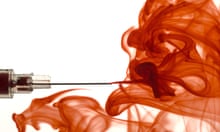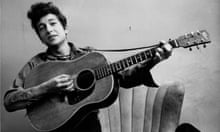Elizabeth Wurtzel, the journalist and author who chronicled her life with depression in the bestselling memoir Prozac Nation, has died at the age of 52.
Writer David Samuels, Wurtzel’s friend since childhood, told the New York Times that Wurtzel had died in New York from metastatic breast cancer on Tuesday. Wurtzel, who tested positively for the BRCA genetic mutation, was a vocal advocate for BRCA testing in her journalism, while refusing pity for herself. Writing in the Guardian in 2018, she noted: “I hate it when people say that they are sorry about my cancer. Really? Have they met me? I am not someone that you feel sorry for. I am the original mean girl. I now have stage-four upgrade privileges. I can go right to the front. But it’s always been like this. I am a line-cutter. Which is to say, I was precocious. I was early for history.”
On Tuesday, authors, editors and journalists around the world paid tribute to Wurtzel and her early influence on confessional writing, which would become ubiquitous with the birth of the internet. Journalist Ronan Farrow, who studied law with Wurtzel at Yale when she went back to school in 2004, wrote on Twitter: “I met Lizzie in law school. She started mid-career as I was starting young. We were both misfits and she was kind and generous and filled spaces that might have otherwise been lonely with her warmth and humor and idiosyncratic voice. She gave a lot to a lot of us. I miss her.”
Born in 1967, Wurtzel grew up as an only child in New York City and wrote her first book aged six. She began going to therapy at the age of 11 after she self-harmed in a school bathroom, then spent her teen years alternating between trips to the psychiatrist and summer camps as her parents searched for a cure to her depression. While at Harvard, she self-medicated with ecstasy and cocaine, then began taking Prozac and lithium. She also began working in journalism: she was fired as an intern from the Dallas Morning News in 1988 when she was accused of plagiarism, but later found work as a music critic at the New Yorker.
In 1994, aged 27, she became famous with her memoir Prozac Nation, which explored how her experience with depression compared with “all these happy-pill poppers” across the US, while also exposing the worst of her own behaviour. “I was so far gone that I didn’t even come across as sad any longer,” she wrote. “Just obnoxious.”
This combination of self-awareness and unapologetic narcissism made the book a bestseller, and Wurtzel a pioneer in a burgeoning field of mental health memoirs. The New York Times Book Review labelled her “Sylvia Plath with the ego of Madonna”, while Kirkus called the book “an excruciating portrait of, even cause for, depression. This most certainly is not an examination of a generation’s collective psyche.” As Wurtzel later reflected: “I was a hashtag before there was Twitter.”
Her follow-up four years later, Bitch: In Praise of Difficult Women received mixed reviews, with the New York Times noting that it was “full of enormous contradictions, bizarre digressions and illogical outbursts” but also “one of the more honest, insightful and witty books on the subject of women to have come along in a while”. But her 2001 book More, Now, Again, a series of essays on – among other things –her Ritalin addiction, shoplifting and smuggling cocaine into Stockholm in her diaphragm, was negatively reviewed around the world. In the Guardian, Toby Young called it “the reductio ad absurdum of this whole self-obsessed genre: it’s a confessional memoir by someone who has nothing to confess.” In 2012, it was revealed that Wurtzel was being sued by Penguin Random House in order to reclaim a $100,000 (£76,000) advance for “a book for teenagers to help them cope with depression” that Wurtzel failed to complete.
Wurtzel continued to write about her life and troubles in her journalism, reflecting on married life, ageing, her cancer diagnosis and the revelation at the age of 50 that the man she thought was her father really wasn’t. In 2018, Wurtzel detailed in an article for the Cut that her real father was photographer Bob Adelman, most famous for his photographs of Martin Luther King Jr’s “I have a dream” speech in August 1963, and who had an affair with her mother when they met at publisher Random House.
“I am more pleased that I only write what I feel like and it has been lucrative since I got out of college in 1989. I had the great and unexpected success of Prozac Nation in 1994, and that bought me freedom. And I have spent that freedom carelessly, and with great gratitude. Why would I do anything else? I did not expect, not ever, to be scared to death,” she reflected in 2013. “I was born with a mind that is compromised by preternatural unhappiness, and I might have died very young or done very little. Instead, I made a career out of my emotions.”








